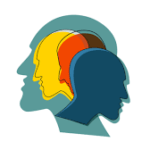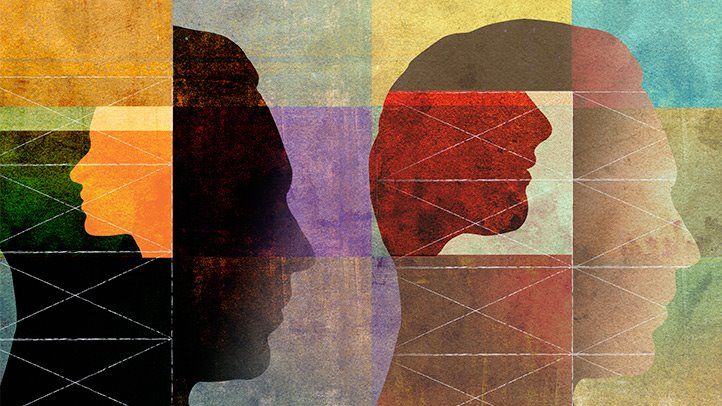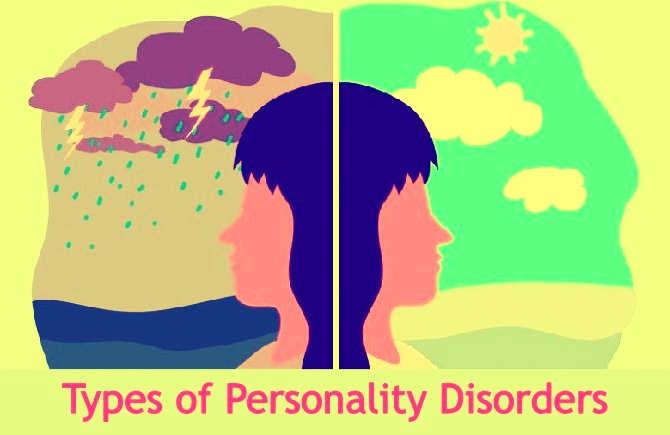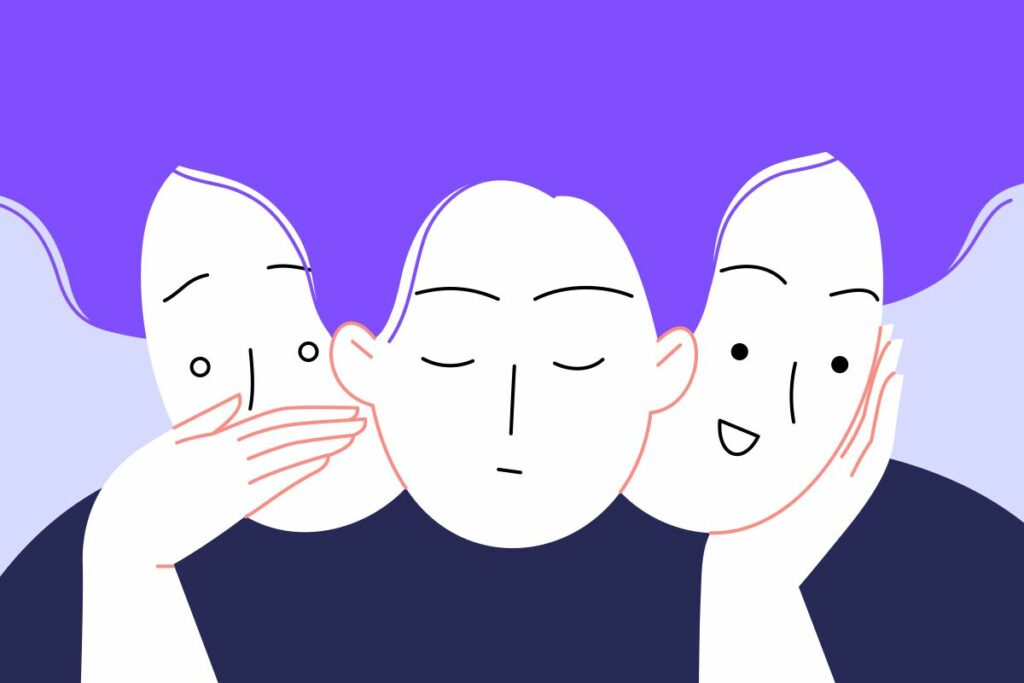Do you know what a personality disorder is? You might be wondering how to spot one, or if they are even real. The truth is that many people suffer from these disorders and do not know it.
Such disorders can make life very difficult for the person living with them, as well as those around them. This blog post will cover everything you need to know about personality disorders: causes, symptoms, diagnosis, treatment options, and more!
Contents
- 1 What Is a Personality Disorder?
- 2 What Are the Types of Personalities?
- 3 Common Personality Disorders
- 4 Other Personality Disorders
- 5 What Causes Personality Disorder?
- 6 What Are the Symptoms of Personality Disorder?
- 7 Diagnosis of Personality Disorder
- 8 What are the Treatment Options for Personality Disorder?
- 9 Psychologists and Personality Disorder
- 10 Conclusion
What Is a Personality Disorder?

A personality disorder is a mental illness that affects how someone thinks, feels, and behaves. Personality disorders are very common, affecting an estimated one in every twenty people. They are more common in women than men.
An individual with such a disorder has trouble reading social cues and understanding the emotions of others. They’re also more likely to have consistent mood swings.
This can lead them to start relationships that are both unstable and unhealthy, which then leads to violence or abuse in their closest personal connections.
Most people with such disorders were created by genetics but life experiences may also contribute to the development of such disorders.
What Are the Types of Personalities?
There are ten different types of personalities, each with its own unique set of symptoms.
Schizoid
A person is introverted and isolated; they’re not interested in relationships or socializing.
Schizotypal
A person has ideas or perceptions that are strange and they often experience hallucinations or delusions.
Antisocial
A person is impulsive, doesn’t care about the feelings of others, and may be aggressive or violent.
Borderline
A person experiences a lot of mood swings and instability in their relationships.
Histrionic
A person is attention-seeking and dramatic, often overreacting to things that don’t warrant it. They are also very emotional about their feelings toward others.
Narcissistic
A person thinks they’re better than everyone else around them. They may be preoccupied with fantasies of power.
Avoidant
A person is socially withdrawn and feels like they’re inferior to everyone else. This causes them to reject social situations or interactions that might lead them into uncomfortable territory.
Dependent
A person needs constant reassurance from others, often relies on other people for help with day-to-day tasks, and has difficulty making decisions without direction.
Obsessive-Compulsive
A person is preoccupied with things like perfectionism or control to the point that it’s detrimental. They also have difficulty shifting their focus away from these pursuits to engage in social situations.
Common Personality Disorders
The three most common types of personality disorder are borderline personality disorder, narcissistic personality disorder, and antisocial personality disorder.
Borderline Personality Disorder

Individuals who meet the criteria for having a borderline personality suffer from an intense fear of abandonment. They often engage in impulsive, damaging behaviors to avoid this feeling.
These behaviors typically begin by early adulthood and include:
- Cutting or burning their skin;
- Abusing drugs/alcohol;
- Binge eating; and
- Unsafe sex
People with a borderline personality disorder also have a distorted view of themselves and others, which can lead to problems with identity, self-esteem, and empathy.
They may also experience intense mood swings over a short period. Finally, people with this disorder often find it difficult to tolerate boredom or routine.
Narcissistic Personality Disorder

People with narcissistic personality disorder have an inflated sense of self-esteem and a need for admiration from others. They often lack empathy for others and may exploit them.
They may also have a grandiose view of themselves, believing that they are superior to others. Finally, people with this disorder frequently engage in impulsive behaviors.
Individuals with antisocial personality disorder have a disregard for the rights of others. They may repeatedly violate the law, lie, and steal to get what they want without remorse.
People who are diagnosed with this disorder typically display symptoms by their teenage years. However, seeing these behaviors continue into adulthood is not necessary for a diagnosis.
They may also have problems with aggression and impulsiveness. Finally, people with antisocial personality disorder often lack empathy and feel no guilt or remorse for their actions.
Other Personality Disorders

Histrionic Personality Disorder
People who are diagnosed with histrionic personality disorder tend to be very emotional and dramatic. They may be extremely sensitive to criticism and often feel like they are the center of attention.
They typically have a low sense of self-esteem and tend to use sex and seduction as a way to get attention from others. People with histrionic personality disorder also tend to be impulsive.
Obsessive-Compulsive Personality Disorder
People with obsessive-compulsive personality disorder are perfectionists to the point where it interferes with their ability to complete tasks and live a normal life.
They may be extremely rigid and inflexible when it comes to their beliefs, values, and morals.
They also have an excessive need for order and symmetry and can be extremely controlling and critical of others.
Paranoid Personality Disorder
People with paranoid personality disorder often have a distorted view of reality and believe that others are out to get them.
They may be suspicious, secretive, and mistrusting of others.
They may also experience delusions or hallucinations. People with paranoid personality disorder are often uncooperative and hostile.
Schizoid Personality Disorder
Individuals diagnosed with schizoid personality disorder tend to be very introverted, which means they are more comfortable being alone than around other people.
They typically have a limited range of emotions and avoid social activities because they do not feel like it interests them or they do not feel comfortable participating.
People with schizoid personality disorder often have a flat affect (meaning they don’t show emotion) and may seem detached or indifferent to others.
Schizotypal Personality Disorder
Individuals who are diagnosed with schizotypal personality disorder often experience symptoms that are similar to those of schizophrenia. For example, they may have paranoid thoughts or believe that others are reading their minds.
They also tend to be very superstitious and hold onto odd beliefs about themselves and the world around them. People with this personality disorder often feel like they do not fit in well with society.
Sociopathic Personality Disorder
Individuals who are diagnosed with a sociopathic personality disorder often appear to be charming and friendly on the surface. But they have very few morals or feelings of guilt.
They also tend to lack close relationships and may show little concern for others’ welfare.
People with this type of personality disorder generally feel no empathy toward other people, which means they are unable to understand how others feel.
They also have a disregard for laws and social norms, which means that they may break the law or hurt others with no sense of guilt or remorse.
People who are diagnosed with antisocial personality disorder often act out aggressively and impulsively without thinking about consequences.
They may also disregard the rights of others and feel no guilt or remorse for their actions.
People with antisocial personality disorder often have a history of criminal behavior, drug and alcohol abuse, and problems in relationships.
NOTE: There are ten specific types of personality disorders. But there is also a catch-all category for those who don’t fit into any other type.
What Causes Personality Disorder?
There’s a strong genetic component to personality disorder. Most people with one have it because their parents had it as well. Some think that early childhood trauma can trigger personality disorders, but this is still being studied.
So, there is no one answer to this question as personality disorders are likely caused by a combination of genetics and life experiences. However, some potential causes could include:
Genetics
Some people are born with a predisposition to developing a personality disorder due to their genes. This means that the disorder may be passed down from parents to children.
Biology
There may also be a biological component to personality disorders, as research has shown that people with these disorders have different brain chemistry than those without them.
Environmental factors
Childhood abuse or neglect can trigger a personality disorder in some people. Also, growing up in an environment where there is a lot of stress or chaos can increase the risk.
Social and cultural factors
The culture a person lives in may also play a role in whether they develop a personality disorder. For example, people who grow up in cultures that value perfectionism and obedience are more likely to develop an eating disorder.
What Are the Symptoms of Personality Disorder?
Personality disorder symptoms vary depending on the type of disorder. However, some general symptoms could include:
- Difficulty regulating emotions
- Impaired thinking and judgment
- Inability to form relationships with others
- Low self-esteem
- Poor impulse control
- Problems with relationships and interpersonal skills
- A distorted view of self or others, which can cause problems with identity, self-esteem, and empathy
- Impulsive or reckless behavior that may lead to harm of oneself or others
- Extreme mood swings over a short period
- Inability to tolerate boredom or routine
- Odd or unusual thinking patterns
- Engaging in risky behaviors
- Having intense, unstable emotions
Diagnosis of Personality Disorder
A diagnosis of these disorders is made by a mental health professional, such as a psychologist or psychiatrist. They will look at your symptoms and history to see if you meet the criteria for a personality disorder.
To be diagnosed with a personality disorder, you must meet certain criteria set out in the DSM-V (the diagnostic manual used by psychologists).
What are the Treatment Options for Personality Disorder?
There is no one-size-fits-all answer to this question, as the treatment options for personality disorders will vary depending on the individual’s needs. However, some potential treatments could include:
Psychotherapy
Psychotherapy such as cognitive-behavioral therapy (CBT) or dialectical behavior therapy (DBT) is often seen as the main treatment for personality disorders.
This type of therapy can help people to understand their thoughts and behaviors, and how these might be impacting their life. It can also help them to learn new skills to manage their symptoms.
Cognitive Behavioral Therapy
This type of therapy aims to help people recognize and change the thoughts and beliefs that might be contributing to their problems.
It can be helpful for people with personality disorders as it can help them to manage their symptoms, improve their mood, and increase their self-esteem.
Medication
In some cases, medication may be prescribed to help manage the symptoms of a personality disorder. This could include antidepressants, antipsychotics, or mood stabilizers.
Self-Help Strategies
Some self-help strategies can be useful for people with personality disorders. These might include things like relaxation techniques, journaling, and setting goals.
Interpersonal Therapy
Interpersonal therapy (IPT) is a type of psychotherapy that focuses on an individual’s relationships and interactions with others.
It includes components such as problem-solving, communication skills training, and generally learning to manage conflict in their interpersonal relationships.
Family Therapy
Family therapy is often recommended for those with a personality disorder who are living with family members. This type of therapy focuses on how the family members interact with one another.
In-patient Treatment
In some cases, a person with a personality disorder may need to be treated in an in-patient setting. This would involve them residing at the treatment facility for a certain amount of time while undergoing therapy and learning new skills.
NOTE: These are just some of the treatment options available for personality disorders, and there may be others depending on each individual’s needs.
It is important to talk about these potential treatments with a doctor or mental health professional to determine which would work best for that particular person.
Psychologists and Personality Disorder

Some people may also find self-help resources helpful, such as books or online courses. It’s still important to work with a therapist who has experience treating personality disorders if you are seeking help for this condition.
As psychologists are trained in the assessment and treatment of personality disorders. They can provide therapy, medication management, and guidance to family members. In addition, some psychologists may also specialize in a particular type of therapy such as CBT or IPT.
So, if you are struggling with a personality disorder, it can be helpful to seek out the help of a psychologist. They can provide you with the support and guidance you need to manage your symptoms and improve your life.
NOTE: There are a variety of psychologists who specialize in the treatment of personality disorders. Some of these include cognitive therapists, psychodynamic therapists, and family therapists. If you are looking for a therapist who specializes in personality disorders, your best bet is to ask your doctor for a referral.
Conclusion
Personality disorders are complex conditions that can impact every area of an individual’s life. However, there is help available for those who are struggling with them.
Treatment options can vary depending on the individual. But some of these potential treatments may include therapy, medication management, and guidance to family members.
The best way to determine which type of therapy or medication is right for you is to speak with a medical professional who specializes in treating personality disorders.
So, if you or someone that you know is struggling with these disorders it might be helpful to speak with your doctor about treatment options as well as consider seeking out the help of a psychologist.
If you are looking for affordable Online Counseling MantraCare can help: Book a trial therapy session


